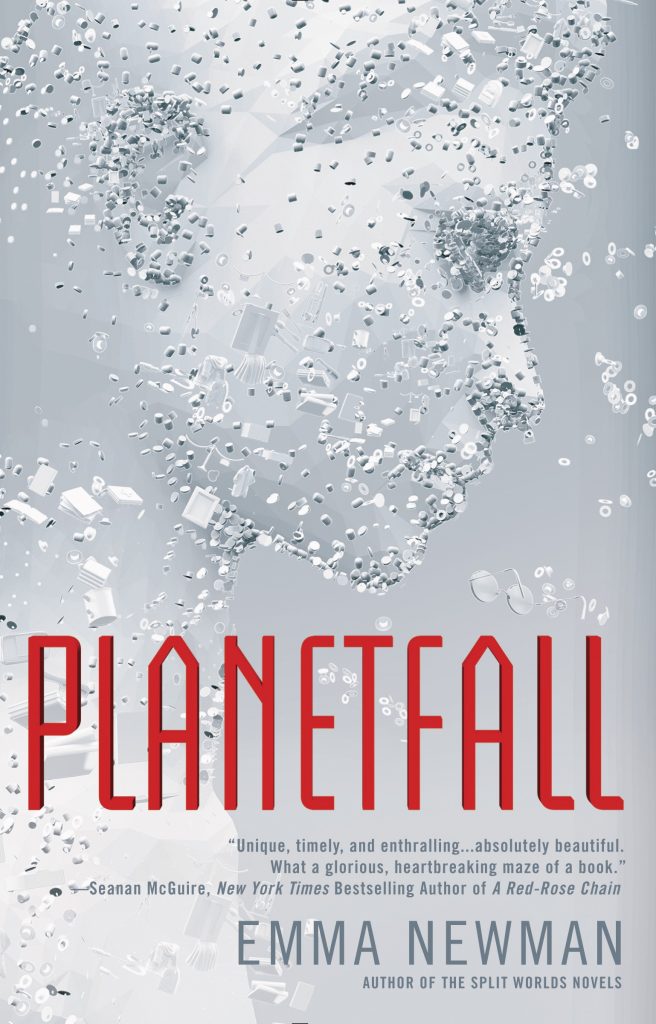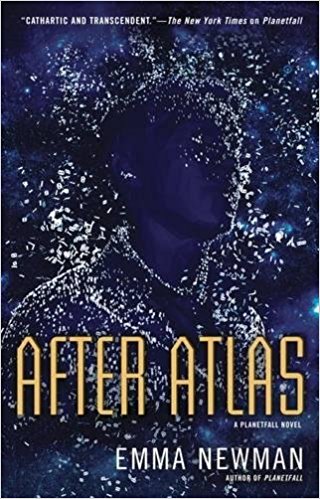I found Planetfall to be a confounding read. At first, I struggled to get into it and had some issues with the prose. Then I found I loved it, but still questioned the pacing. Leading up to the ending, I could not put it down. But then, everything went wrong with that ending. Through the reading experience, I managed to have almost every possible critical opinion of the book at one point or another.
Is it worth reading? Absolutely. Is it perfect? Far from it.
The novel follows a group of colonists attempting to survive on a faraway planet. They’ve been settled for over twenty years when a survivor of a presumed lost group of original colonists appears. The newcomer begins to uncover dark secrets underpinning the seemingly perfect colony beneath God’s City, where nothing is as it seems.
I think ‘majority’ is one of my least favorite words. It’s so often used to justify bad decisions.
 Of the technical issues with the book, the pacing is one of the biggest. The novel took a long time to truly grab my attention and there were long lulls between moments of building tension. Part of this comes from the nature of conspiracies and mysteries – Newman withholds a lot of information from the reader, keeping them guessing about what really happened all those years ago. Trouble is, by a certain point, the withholding feels too deliberate, frustratingly so. And while the payoff is fantastic, not all readers will be patient enough to stick with it to reach that point.
Of the technical issues with the book, the pacing is one of the biggest. The novel took a long time to truly grab my attention and there were long lulls between moments of building tension. Part of this comes from the nature of conspiracies and mysteries – Newman withholds a lot of information from the reader, keeping them guessing about what really happened all those years ago. Trouble is, by a certain point, the withholding feels too deliberate, frustratingly so. And while the payoff is fantastic, not all readers will be patient enough to stick with it to reach that point.
My other major technical issue was with the prose style. Newman swings between nuanced, accomplished prose and lapsing into journalistic ‘tell’ style. When these passages occur, the actions of the protagonist are simply reported as they happen, one thing after another. It quickly becomes tedious and detracts from the quality of the rest. Here is a passage that I found particularly irritating in it’s reported style:
I click the button at the side and the needle goes in, filling the internal vial with his blood. When it’s full, the needle withdraws and the device deposits a tiny bit of skin sealant. When the display goes green, I lift it off his skin and place a pen into the analyzer as part of the case.
 The novel follows colonists who are, for the most part, driven by faith. I often struggle with novels using religion at the core of the narrative, and this was no exception. I find them uncomfortable, but I do try to push past my prejudices and assess the stories on their own merits. Once I found the groove of the book, the faith element didn’t bother me much… until the ending. Not only is the ending entirely unsatisfying (it leaves quite a few strands simply abandoned), I found that it relied too heavily on the religious aspect in terms of an ‘unexplainable’ get-out clause.
The novel follows colonists who are, for the most part, driven by faith. I often struggle with novels using religion at the core of the narrative, and this was no exception. I find them uncomfortable, but I do try to push past my prejudices and assess the stories on their own merits. Once I found the groove of the book, the faith element didn’t bother me much… until the ending. Not only is the ending entirely unsatisfying (it leaves quite a few strands simply abandoned), I found that it relied too heavily on the religious aspect in terms of an ‘unexplainable’ get-out clause.
While all that might sound very negative, they only stood out so much because the majority of the novel is so good. Planetfall is original and fascinating, with interesting characters, a unique setting, and subtle sources of tension. What you think is a strange b-plot turns out to be crucial to the core narrative – and it is revealed in extraordinary fashion. This is the kind of ambitious storytelling that I love so much about science fiction as a genre.
Verdict: Planetfall is an enjoyable and intriguing science fiction story with an awful lot going for it. If you’re a fan of the genre, I do recommend reading it, despite its flaws.
 Pop Verse Pop Culture Universe
Pop Verse Pop Culture Universe






